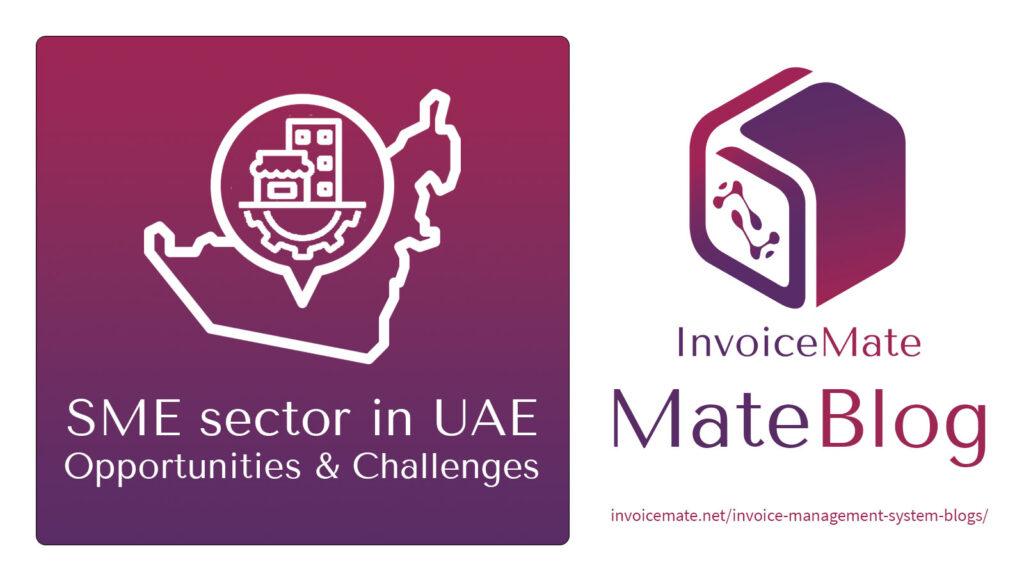Connect With Us
SME Sector in UAE, Opportunities & Challenges

Small and Medium Enterprises (SMEs) play a significant role in the economy of the United Arab Emirates (UAE), contributing to economic growth, innovation, job creation, and diversification.
Referring to a report, the number of SMEs in the UAE was 557,000 at the end of the year 2022. According to the Ministry of Economy, UAE, SMEs account for 94% of the total businesses operating in the Emirates. The SME sector provides 86% of the private sector jobs in the UAE.
The UAE government recognizes the importance of SMEs and has taken various measures to support and enhance their development. Following is an overview of the role of SMEs in the UAE’s economy and their opportunities and challenges in the financing landscape:
Role of SMEs in UAE’s Economy:
SMEs constitute a substantial portion of the UAE’s economy and are integral to its economic diversification efforts. They contribute to GDP growth, increase employment opportunities, and foster innovation.
Some key roles of SMEs in the UAE’s economy include:
Job Creation:
SMEs are significant generators of employment, absorbing a substantial portion of the labor force. They provide opportunities for local residents and expatriates alike, contributing to the overall employment landscape.
Economic Diversification:
The UAE has traditionally been reliant on oil revenues. SMEs are crucial in diversifying the economy by engaging in various sectors such as manufacturing, services, technology, tourism, and more.
Innovation and Entrepreneurship:
SMEs are often at the forefront of innovation and entrepreneurship, introducing new products, services, and business models to the market. Their agility and adaptability enable them to respond quickly to changing market demands.
Contribution to GDP:
Though the exact contribution can vary, SMEs collectively make up a significant portion of the UAE’s GDP. This contribution is expected to grow as the government continues to focus on supporting SME development.
SME Financing in the Region:
Access to financing is a crucial factor for the growth and sustainability of SMEs. The UAE government and financial institutions have taken steps to enhance SME financing options and address the challenges faced by small businesses:
Government Initiatives:
The UAE government has launched several initiatives to support SMEs, including financial assistance programs, reduced fees for business setup, and measures to facilitate SME participation in government contracts.
Following are the two initiatives by the UAE government for SME sector:
Banks and Financial Institutions:
UAE’s banks and financial institutions offer various financing options tailored to the needs of SMEs. These include working capital loans, equipment financing, trade finance, and business expansion loans.
Venture Capital and Angel Investors:
The startup ecosystem in the UAE has attracted venture capital firms and angel investors willing to provide funding to innovative and promising SMEs, particularly in the technology sector.
Fintech Solutions:
The rise of financial technology (fintech) has brought about alternative financing options such as peer-to-peer lending, crowdfunding, and online lending platforms. These platforms provide easier access to capital for some SMEs.
Credit Guarantee Schemes:
Some UAE institutions offer credit guarantee schemes, where the government or relevant agencies provide a guarantee on loans taken by SMEs, reducing the risk for lenders and making it easier for SMEs to secure funding.
Trade Finance:
Given the UAE’s status as a trade hub, SMEs engaged in import and export activities can access trade finance products such as letters of credit, documentary collections, and export credit insurance.
Microfinance:
Some institutions offer microfinance services targeted at very small businesses and entrepreneurs who might not meet the criteria for traditional financing. These microloans are designed to address the specific needs of micro-enterprises.
Islamic Financing:
Given that Islamic finance principles are important in the UAE, Islamic banks provide Sharia-compliant financing solutions to SMEs, catering to their specific financial needs.
Regulatory Framework:
The UAE Central Bank and other regulatory bodies play a role in overseeing the financial sector, ensuring that SMEs have access to fair and transparent financing options.
Challenges for SMEs:
Despite these initiatives, challenges related to collateral requirements, high-interest rates, and a lack of credit history can still hinder SMEs’ access to financing. Additionally, some SMEs struggle with financial management and transparency, affecting their creditworthiness.
In conclusion, SMEs are vital to the UAE’s economy, driving diversification, innovation, and employment. The UAE government and financial institutions continue to take steps to improve SME financing options and create a supportive environment for small businesses to thrive.
InvoiceMate for SME Invoice Financing:
InvoiceMate is the world’s first blockchain-powered invoice financing enabler. InvoiceMate is DIFC incorporated with a special focus on the SMEs of the region. Empowering SMEs of the UAE through financial inclusion is a core objective of InvoiceMate.
By utilizing the trust, transparency, and efficiency of blockchain and AI, InvoiceMate offers a unique KYI (Know Your Invoice) service that replaces traditional due diligence practices for invoice financing. InvoiceMate offers embedded financing solutions for banks and other financing institutions. With InvoiceMate, SMEs can approach financing services with confidence.
Learn more at
